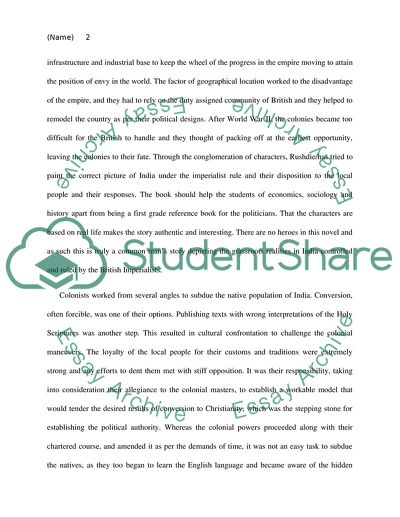Cite this document
(“The significance of colonialism Salman Rushdies Midnights Children Essay”, n.d.)
Retrieved from https://studentshare.org/literature/1666823-the-significance-of-colonialism-salman-rushdies-midnights-children
Retrieved from https://studentshare.org/literature/1666823-the-significance-of-colonialism-salman-rushdies-midnights-children
(The Significance of Colonialism Salman Rushdies Midnights Children Essay)
https://studentshare.org/literature/1666823-the-significance-of-colonialism-salman-rushdies-midnights-children.
https://studentshare.org/literature/1666823-the-significance-of-colonialism-salman-rushdies-midnights-children.
“The Significance of Colonialism Salman Rushdies Midnights Children Essay”, n.d. https://studentshare.org/literature/1666823-the-significance-of-colonialism-salman-rushdies-midnights-children.


